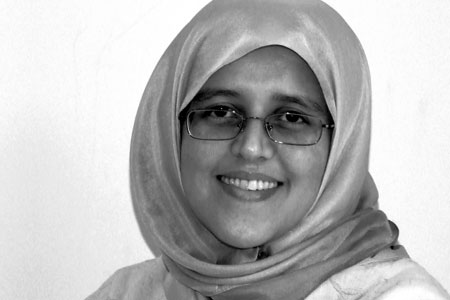
Writing: The Bloodless Wound
Issue 49 October 2008
‘Writing is a bloodless wound’ wrote Mahmoud Darwish, acclaimed and award winning Palestinian poet who died in August of this year. In so writing he, of course, alludes to the power of the pen and his belief in the poem as a “threat to the sword”. Certainly through his prolific and award winning work Darwish has demonstrated the power of words and the value of artistic expression in particular. Darwish’s loss was felt acutely by Palestinians, much of the Arab world and even by many Israelis. This loss was felt because he, more than anyone, was able to forge a Palestinian consciousness and identity through his poetry and his tireless work. His poems are studied by children in Palestine, across the Arab world, are popularised as songs and anthems, and have even been set to music by Israeli musicians. Whilst powerfully capturing the Palestinian experience through his poetry, his achievements are remarkable in his ability to transcend barriers and in the universality of his appeal.
More than this though, Darwish symbolises triumph; a triumph of the pen over the sword and a triumph of right over might. His true legacy lies in his passionate espousal of his own cause but also in his ability to see the other side and to captivate the imagination of friend and foe alike. Darwish’s power and popularity lie in the strength of the sentiments and passion he expresses, in the experience that he encapsulates, but also in his ability to surmount cultural barriers and those of conflict. Having been driven from his village as a child and later exiled as a young adult, his poetry gives voice to the horrors of dispossession, violation, dislocation and exile. He described Palestine as a metaphor for loss, exile and dispossession: ‘I am the Adam of two Edens lost to me twice: Expel me slowly. Kill me slowly.’
Whilst clearly and unequivocally critical of Israel, Darwish was in favour of a two state solution. He also recognised that Israelis and Israeli soldiers in particular, were as much victims of circumstances as he himself. Within Israel he remains a controversial figure but appeals to many. Yossi Sarid, former Israeli Education Minister, proposed in 2000 that Darwish’s work form part of the Israeli high school curriculum. The proposal was rejected by then Prime Minister, Ehud Barak, as he felt that Israel was not ready for it. With his death, the debate has been reignited but for now there are no plans to put Darwish onto the curriculum. Needless to say, such a move would have major significance for the future generations of both Israel and Palestine.
Darwish was a passionate advocate of human rights and dedicated his life to the cause of upholding them. He was instrumental in conceptualising a notion of Palestinian statehood and identity. Darwish served, for many years, as an executive member of the Palestinian Liberation Organisation and drafted the Palestinian Declaration of Statehood in 1988. However, he resigned from the PLO Executive in 1993 over the Oslo Accords which he strongly opposed. Indeed he was heavily critical of the Palestinian leadership and of the factionalism of recent decades. Nevertheless, he was able to win respect and recognition from all sides of the conflict, he was given a state funeral and Khaled Mashal, Hamas Supreme Leader said, on his death, that “Palestinian arts has lost...one of its most essential treasures”. Of course, Darwish was much more than a political activist and will be remembered as one of the most remarkable modern Arab poets. He wrote extensively, publishing over 20 collections of poetry and prose and won numerous International Awards including France’s highest medal as Knight of Arts and Belles Lettres in 1997 and the Lannan Prize for cultural freedom in 2001. Much of his writing was on the universal and timeless themes of love, life and death. The tragedy and futility of conflict and war are recurring themes too in his work: ‘“Me, or him” That’s how war starts. But it ends in an awkward stance: “Me and him”.
In a world marred by conflict, his writing cannot but have universal appeal and relevance. He will be celebrated for the contribution that he made to a nation, a people and a struggle that seems to know no end but in so doing he will, like so many poets before him, continue to affect meaningful change in ways that the sword never will.
Bookmark this |
|
Add to DIGG |
|
Add to del.icio.us |
|
Stumble this |
|
Share on Facebook |
|
Share this |
|
Send to a Friend |
|
Link to this |
|
Printer Friendly |
|
Print in plain text |
|

Comments
0 Comments